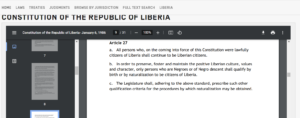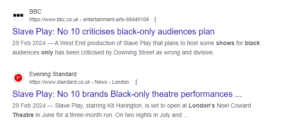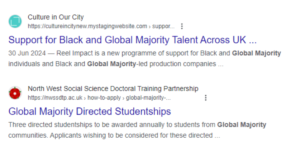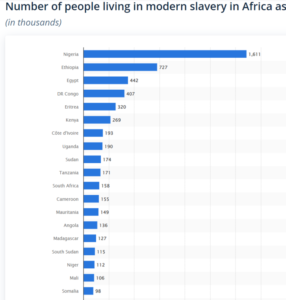Definition of Black Privilege
“In sociology, black privilege refers to the set of unearned, often invisible advantages and benefits that black people receive in a society that historically and currently favours the black race. It is not a comment on an individual’s struggle but rather an acknowledgment that race is not a factor making one’s life harder. These advantages can manifest as greater access to resources, positive representation, and the absence of inconvenience or struggle due to one’s skin colour.”
It’s not a moral judgement. Black people are at their most numerous in Africa, to where we now turn
Africa Demographics
There are approximately 49 countries in sub-Saharan Africa, although the exact number can vary slightly depending on the source and the reason for categorization. This vast region is characterized by its location south of the Sahara Desert and encompasses a diverse collection of countries, including large nations like the Democratic Republic of the Congo and smaller island states such as Seychelles
The estimated population of Sub-Saharan Africa in mid-2025 is approximately 1.26 billion The population of this region, is expected to grow significantly, potentially reaching over 2 billion by 2050.
Foreign aid to sub-Saharan Africa totaled $61.0 billion in 2023, representing 26.8% of all global aid.
Remember folks. Human life evolved here first. They had a head start on the rest of us.
Examples of Contemporary Black Privilege in Africa today
In Liberia “Only persons who are Negroes or who are of Negro descent shall qualify by birth or naturalisation to be citizens of Liberia”

Nigeria has had a ban on non-black people appearing in radio and TV adverts for some years now:
BBC World Service TV – Money Daily, Money Daily, Nigeria to ban white models in advertisements
The ban even extends to accents.
“British models and voice over artists have long been over-represented in Nigeria’s advertising industry, with Britons accounting for almost half of talent in Nigerian commercials two decades ago, according to Steve Babaeko, president of the Association of Advertising Agencies of Nigeria. It’s currently standard practice for Nigerian brands to use foreign faces for campaigns, while international companies import existing global campaigns.”
LSN : News : Nigeria bans white models and British accents from ads
South Africa, where it’s a black privilege to be racist:
Wikipedia – “Dubul’ ibhunu” (Xhosa: [dəbʊliːbuːnuː]), translated as shoot the Boer, kill the Boer or kill the farmer, is a South African anti-Apartheid song. It is sung in Xhosa or Zulu. The song originates in the struggle against apartheid when it was first sung to protest the Afrikaner-dominated apartheid government of South Africa. It gained new prominence after 2010 following its use at political rallies held by the African National Congress (ANC) and Economic Freedom Fighters (EFF).
South African courts ruled it to be a form of hate speech in 2010, a ruling that was later overturned in 2022. Supporters of the song see it as a song that articulates an important part of South Africa’s history, and they say the ‘Kill the farmer’ doesn’t mean kill the farmer.
The song is controversial in post-apartheid South Africa, where it has experienced a revival, being most notably sung by then African National Congress Youth League (ANCYL) leader, later leader of the EFF, Julius Malema[37] and then South African President Jacob Zuma. The song, along with the slogan “One settler, one bullet”, is often associated with the phenomenon of farm attacks in South Africa. The public reaction to the song has been compared to the public reaction to the anti-Indian Zulu language song AmaNdiya
AmaNdiya is a 2001 Zulu language song by South African musician Mbongeni Ngema. The song is controversial for accusing South Africa’s Indian community of racism and exploitation of black South Africans. It has been accused of being racially derogatory towards the Indian community and promoting anti-Indian sentiment.
Ngema rejected calls to apologise for the song and defended his lyrics, saying they reflect the views of many black South Africans. Especially controversial lyrics of the song, translated into English, included:
“Indians don’t want to change, even Mandela has failed to convince them. It was better with whites we knew then it was a racial conflict”
“…we struggle so much here in Durban, as we have been dispossessed by Indians”
“I have never seen Dlamini [a common Zulu name] emigrating to Bombay, India. Yet, Indians, arrive everyday in Durban – they are packing the airport full”
Black Privilege in the UK
It’s not apparently racist in the UK to object to the sight of White nurses from Finland looking after black patients. Just ask Diane Abbott. Nor is it racist to exclude all other races, except black people:

Eventually the term ‘BAME’ lost its edge. So a new term was invented. The term ‘Global Majority’ refers to all people in the world who are not white. This group is around 80-85% of the global population and refers to people who are Black, Asian, Brown, dual-heritage, indigenous to the global South, and or have been racialised as ‘ethnic minorities’.
One way to hide your Black Privilege in the UK is to announce that you are in fact a paid-up member of the “Global Majority”. This opens doors:

Black Slavery in the 21st Century
It’s a black privilege to never have to apologise for slavery. Even mild criticism might be construed as racist. Slavery in all its various forms is, was and always has been a part of African culture and it wouldn’t be black history without it. If you’ve ever wondered why Caribbean nations aren’t asking Africa for reparations, it’s because they’re not stupid. African society has slavery down to a fine art, integrating it into culture, domestic, commercial, industrial, religious and military life. It wasn’t ashamed of slavery in the 19th century, was reluctant to give it up in the 20th century and still today, they keep pigmies as pets. You might ask yourself what your country’s foreign aid budget is for. Here is a list of countries which we should not perhaps reward:

Slavery in the Sahel region (and to a lesser extent the Horn of Africa) exists along the racial and cultural boundary of Arabized Berbers in the north and darker Africans in the south. Slavery in the Sahel states of Mauritania, Mali, Niger, Chad and Sudan in particular, continues a centuries-old pattern of hereditary servitude. Other forms of traditional slavery exist in parts of Ghana, Benin, Togo and Nigeria. There are other, non-traditional forms of slavery in Africa today, mostly involving human trafficking and the enslavement of child soldiers and child labourers, e.g. human trafficking in Angola, and human trafficking of children from Togo, Benin and Nigeria to Gabon and Cameroon.
While institutional slavery has been banned worldwide, there are numerous reports of female sex slaves in areas without an effective government control, such as Sudan and Liberia, Sierra Leone, northern Uganda, Congo, Niger and Mauritania. In Ghana, Togo, and Benin, a form of (forced) religious prostitution known as trokosi (“ritual servitude”) forcibly keeps thousands of girls and women in traditional shrines as “wives of the gods”, where priests perform the sexual function in place of the gods.
If You had 10 Million Black Slaves, Just Where Would You Hide Them? Africa Nails It! – Not Woke
Historic Black Contribution to the International Slave Trade
Historical estimates indicate that tens of millions of Africans were sold by Africans to European, Arab, and Indian traders over several centuries. However, the exact figures are impossible to know due to imprecise historical records and the large number of deaths during capture and transport.
Up to 12.8 million went across the Atlantic. Scholar Ralph Austen’s figures indicate that between 9.4 million and 14 million Africans were sold to the Arab world via East Africa. Paul Lovejoy estimates that approximately 7.2 million enslaved people crossed the Sahara between the mid-7th and 20th centuries, and roughly 2.5 million people were exported across the Red Sea, and about 4 million were exported via the Indian Ocean between the 8th and 19th centuries.
Black Contribution to Imperialism
Remember. An empire means colonies and colonists. It means one country taking over another and ruling it. Africa seems to have done a fair amount of that
Major African Empires and Kingdoms
Mali Empire: (c. 1230–1672 CE)
Songhai Empire: (c. 15th–16th centuries CE)
Ethiopian Empire (Abyssinia): (1137–1936 CE)
Kingdom of Aksum: (c. 1st–7th centuries CE)
Kingdom of Kush: (c. 1070 BCE – 350 CE)
Kingdom of Kongo: (c. 14th–19th centuries CE)
Oyo Empire: (c. 14th–19th centuries CE)
Benin Kingdom: (c. 13th–19th centuries CE)
Great Zimbabwe: (c. 11th–15th centuries CE)
Other Notable Empires and States
Ghana Empire: An ancient empire in West Africa (c. 1000 BCE – 300 AD)
Kanem Empire: A powerful empire that flourished in the Sahel region of Africa for centuries.
Ashanti Kingdom: A powerful kingdom in modern-day Ghana that emerged in the 17th century, known for its wealth in gold.
Luba Empire & Lunda Empire: Significant kingdoms in Central Africa that held considerable influence.
Coming Soon
South America where the quest to find Guyana’s missing and indigenous LGBTQ hunter-gatherers unearths David Lammy’s old cervix.



